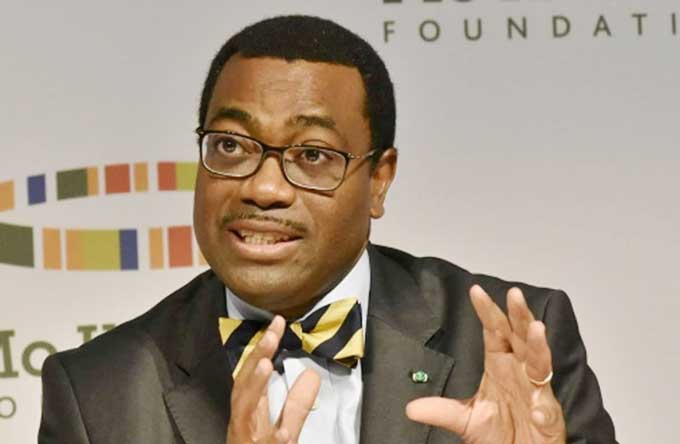
As the Russian blockade of Ukraine restricts grain exports, and creates a global food security crisis, corporatising Africa’s agriculture sector will feed the world, says the AfDB president.
The President of the African Development Bank (AfDB), Akinwumi Adesina has struck a defiant tone in response to the possibility of food shortages on the continent.
Speaking to journalists last week, the former Nigerian agriculture minister insisted “we were not ready for Covid-19. But for agriculture, for food, we are ready. Africa will not face a food crisis.”
Russia’s invasion of Ukraine — two countries that together provide over 30 million megatons of annual food exports to Africa — has pushed the global price of wheat, sorghum and other basic foodstuffs, as well as key agricultural inputs such as fertiliser, to new heights.
This has added to the stresses of years of poor rainfall and weak harvests on the ability of local producers to meet Africa’s food needs.
If, as predicted by the IMF in the latest World Economic Outlook, these stresses endure well into 2023, rising political instability may follow, as populations struggle to recover from the impact of the pandemic on their lives and livelihoods, and blame their plight on governing elites.
Days after echoing the popular Arab Spring adage, “a direct link between food shortages, high food prices and the instability of governments”, Adesina appears to have corrected his course.
New AfDB programme aims to boost food production
- Chamisa under fire over US$120K donation
- Mavhunga puts DeMbare into Chibuku quarterfinals
- Pension funds bet on Cabora Bassa oilfields
- Councils defy govt fire tender directive
Keep Reading
The AfDB’s recently approved $1.5 billion Emergency Food Production Facility, which aims to provide seed, fertiliser and agricultural technology to over 20 million African smallholders, hopes to generate an additional 38 million tons of food, worth $12 billion, in just two years.
Following the conclusion of an emergency facility, the Bank has endorsed a five-year programme aimed at rectifying the systemic barriers to greater food production on the continent, to ensure the long-term sustainability and resilience of Africa’s food systems.
This latest facility, as well as the Bank’s longer-term reform agenda, reflects a major onshoring trend that is sweeping developed, and developing economies.
In a reversal of conventional development wisdom, and spurred by the chaos of Covid-19 and the war in Ukraine’s disruption of international supply chains, countries in regions as diverse as Europe, Australasia and now Africa are seeking to boost their self-sufficiency by replacing imports of essential commodities with local production.
Agriculture ‘must generate wealth’
Will it work? Adesina points to Sudan slashing wheat imports by 50%, and Ethiopia’s transformation from net wheat importer to exporter in just five years.
Technology, such as the genetic modification of crops, will be key to delivering an agricultural revolution, he believes.
Adesina’s vision for Africa’s agricultural sector is for a large, productive, corporatised and highly technical industry, capable of generating large volumes of basic commodities that can simultaneously feed the continent whilst competing with the world’s biggest food bowls.
“Agriculture must be a business,” he says, “not a way of life. It must generate wealth.”
But the road will be rocky. As the first Green Revolution in the second half of the 20th century showed, imposing a technology-driven, agribusiness model over sprawling networks of small, fractured, diverse and often-unproductive producers is not economically, socially, culturally or politically seamless.
Moreover, it requires substantial investment. The AfDB estimates that the transformation of 18 key value chains will cost a cool $315 billion over the 10 years to 2025. While climate change —the single greatest threat to agricultural production and food security — is being felt with increasing urgency around the world, especially in Africa.
Yet Adesina is hopeful: “For the first time ever”, he says, “Africa will not be begging for food.” —African Business










